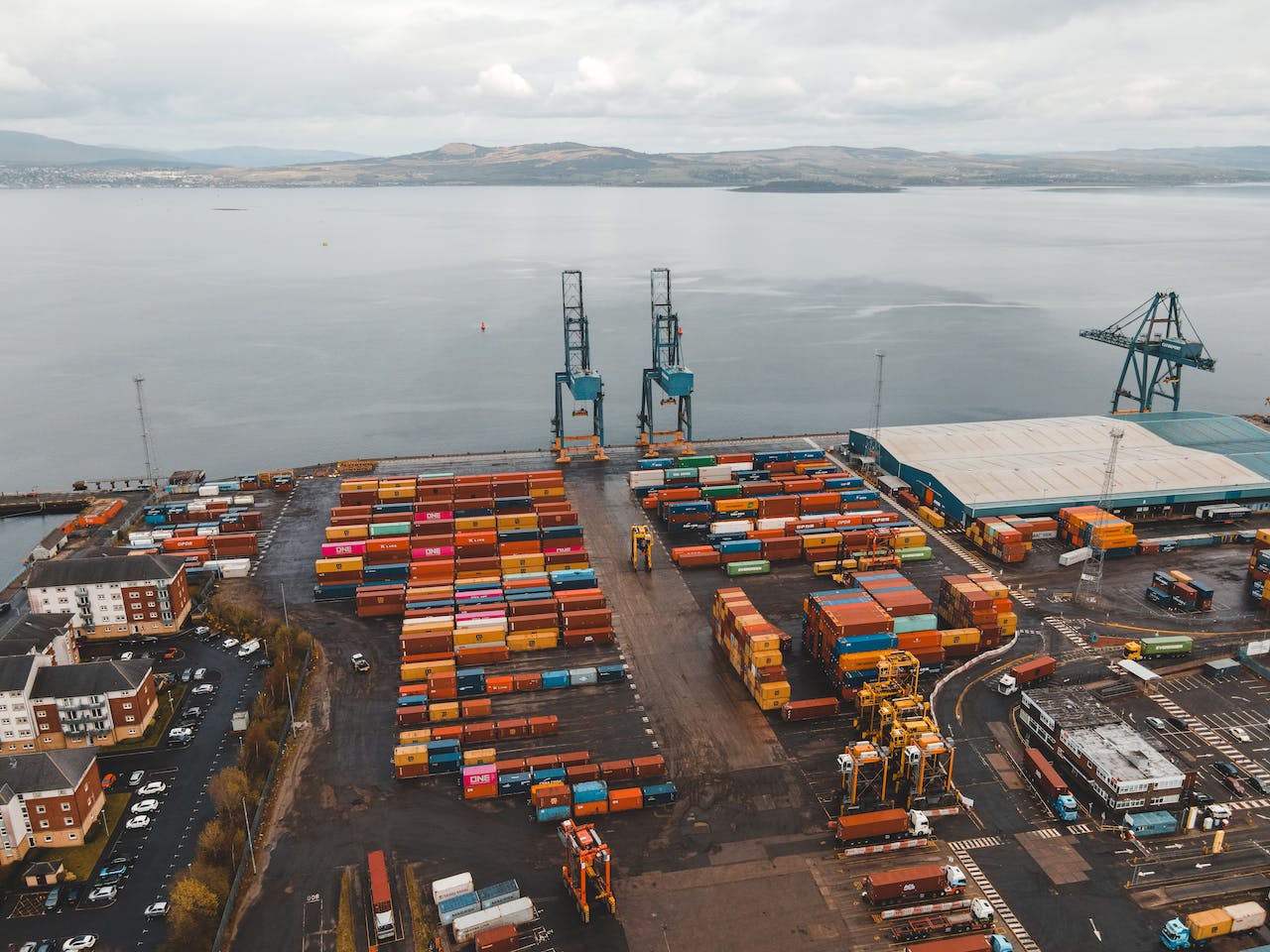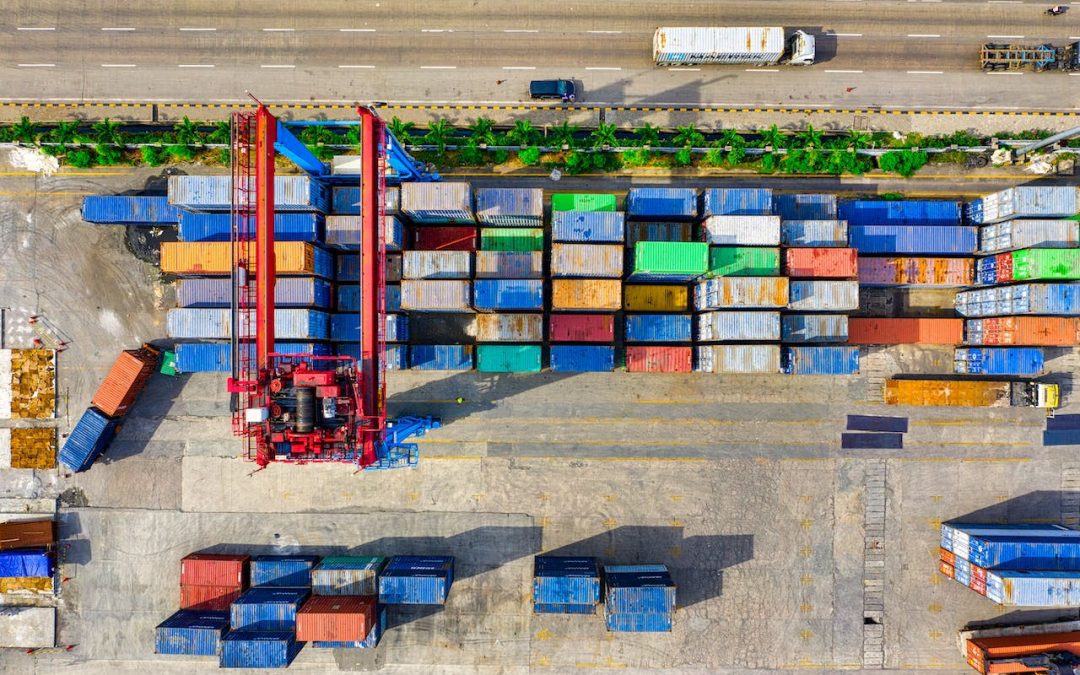Do you import or export goods?
Then, you might have heard of detention and demurrage charges. But what exactly are they, and why do you need to pay them?
Here, we explain the two terms, how they work and why it’s crucial you know about them.
Detention Charges
The word detention fills most of us with a sense of dread. And quite like the schooltime punishment, detention charges are to be avoided just as much!
So what are they?
Well, detention is the time a container spends outside of the terminal, usually when it’s being unpacked. The time is measured from the time the full container is moved out of the port until the empty container is returned at the port or depot.
Detention charges, therefore, are calculated and paid for holding onto a container for too long. A bit like a library book. When you’re late returning the item, you’re charged a fee. And the minute your cargo is unloaded and released from the port, time is ticking down.
Demurrage Charges
Demurrage is the time a container spends at the port terminal before it’s taken to its next destination.
At export stage, this is calculated from the minute it arrives at the terminal to when it’s loaded onto a ship. At import stage, it’s the time the container spends inside the terminal from when it’s offloaded from the ship to when it’s picked up.
What Is Free Time?
No matter the mode of transport used or the location where the container must end up, carriers allow a certain amount of time for the pick-up or removal of containers from the port terminal, which is not chargeable.
The amount of free time allocated is determined by the carrier but averages around 7 days. If a container is not properly collected or removed within this timeframe, they begin to accumulate demurrage or detention charges.
Why Are There Detention & Demurrage Charges?
Detention and demurrage charges are in place to discourage and reduce delays. They are yet another cog in smooth-running global supply chains.
Once a container gets to its destination, what happens next? The journey isn’t over. After the cargo is unloaded, the container needs to be returned to an agreed location, such as the port or container depot so that it can be used for another shipment.
Containers are in high demand worldwide. If everyone took their sweet time about returning them, it would disrupt many businesses’ supply chains. Demurrage and detention encourage timely pickup of cargo to keep ports flowing, ensuring millions of containers can continuously move around the world.

How Are Detention & Demurrage Charges Calculated?
Detention and demurrage charges are calculated on a ‘per diem’ basis. It might sound fancy, but it just means per day.
The maths behind the charges is simple. Multiply the daily tariff for extended use past the allocated free time with the number of days the shipment has exceeded the free time, and Bob’s your uncle.
What Can Cause Detention & Demurrage Charges?
You’ll want to avoid detention and demurrage charges where possible, but what can cause you to exceed the free time in the first place?
Incorrect Documentation
Without the right documents, or if they haven’t been adequately completed, you run the risk of experiencing delays whilst you correct the situation.
Customs Delays
Wrong documents, improper labelling and incorrect classification codes are just some of the reasons it might take you longer than necessary to move through customs.
Adverse Weather
Storms, high winds and snow can all impact detention and demurrage. Weather can increase the time it takes to unpack goods or load containers onto a ship, and it can also cause traffic issues so that trucks can’t collect goods from the port in time.
Poor Planning
Without a cohesive journey planned or due to poor logistical organisation, you won’t know how or by which method your cargo will take the next leg of its journey. While you sort it out, your shipment could incur detention and demurrage charges.
Unforeseen Circumstances
Traffic, road traffic accidents, breakdowns, staff illnesses and absences can all wreak havoc with collecting or delivering cargo on time to avoid charges.
Payment Delays
When a shipper does not get paid, they can make the decision not to release the cargo at all. This means that it must sit at the port terminal, and that translates as an accrual of detention or demurrage charges.
How Can I Avoid Detention & Demurrage Charges?
Detention and demurrage charges incentivise the fluid movement of cargo. This can be a hard pill to swallow when things happen that are out of your control, but here are some ways you can lessen the chances of accruing avoidable charges.
Operational Changes
Assess and make changes to your operations to make sure you’ve sorted the following:
- Correct documentation for clearing customs.
- A mode of transport sorted for pick up or drop off of cargo within the allotted free time.
- Back-up plans in case of road or port congestion.
- Storage options in case you need them.
Request Preclearance
Some countries offer preclearance, enabling you to expedite the customs process and get your goods across the border quicker. Always check, just in case.
Use A Customs Broker Or Freight Forwarder
Customs brokers can speed up the process and gain you entry into your destination country, and freight forwarders can organise the whole shipping process to take the stress off your shoulders. Check out our blog about the different roles here.
Prioritise Loading And Unloading
Think hard about and budget for sufficient manpower and time for these crucial processes to help avoid demurrage and detention charges.
Go Digital
Day to day, many of us use our smartphones to pick up packages, pay for groceries and hold tickets. By digitising your shipping documents, you can streamline the whole process and prevent issues with paper counterparts affecting the speed of moving in or out of the port terminal.
Detention And Demurrage Keep Freight Moving
Fees are a deterrent to slow-moving freight, and this benefits us all. However, detention and demurrage charges aren’t always avoidable.
If you’re worried about unexpected charges, use a freight forwarder for expert knowledge and tried-and-tested shipping processes.
Importing or exporting goods and confused about all the jargon? Get in touch. Millennium is here to help.

